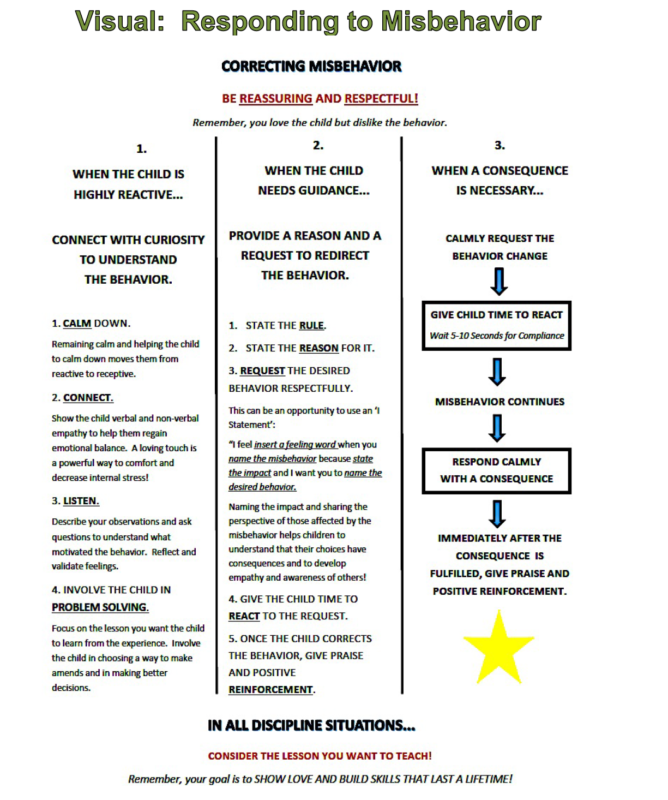Timeouts have become a controversial topic. Many magazines, blogs, and parenting advice columns discuss how timeouts can negatively impact a child’s attachment and emotional regulation. Yet, they fail to include peer-reviewed evidence to support these claims.
Cooper, Heron, and Heward (2007) define timeout “…as the withdrawal of the opportunity to earn positive reinforcement, or the loss of access to positive reinforcers for a specified period of time, contingent on the occurrence of a behavior.” This definition describes the classic timeout strategy – a form of punishment – used by many parents to stop misbehavior from occurring. Punishment is either the removal of a positive reinforcer or the presentation of a negative/aversive reinforcer (Skinner, 1953). However, when timeouts are used as punishments, over time this can create a hostile environment and could lead a child to become more defiant and anxious (Lansford et al., 2010). Although this strategy of leaving a child in an isolated area for a certain amount of time may stop the behavior in the moment, it fails to teach a child why he or she is there, fails to offer long-term solutions or fails to provide the child with alternative ways to cope.
When a timeout is used as a discipline strategy (e.g., calm the child, take a break, engage in discussion on their eye level, work to solve the issue together) as opposed to a punishment strategy, the timeout provides a safe, stable, and secure environment that nurtures self-discipline and self-control in children (Thrive Grow Curriculum, Session 4, 2019). By establishing a trusting and safe relationship with their children, parents help their children to feel comfortable seeking their parent’s advice and learning to emotionally regulate by modeling their parents’ self-calming behaviors. In addition, parents’ physical outbursts are reduced, and traumatic child symptoms from punishment are lessened (Chaffin et al., 2004).
In order to motivate our children to behave in what we consider to be an appropriate way and still have a close relationship with them, we need to view discipline as coming from a place of love, respect, compassion, and emotional control (Thrive Grow Curriculum, Session 4, 2019). Parents need to see children’s behavior as them behaving, not misbehaving. In other words, they are acting like kids and communicating their feelings and needs based on how they have learned to emotionally cope. Parents should help their children learn to regulate their emotions in a healthy manner and consider and try to understand the underlying reasons why a child might be misbehaving (e.g. unmet needs, difficulty with strong emotions, skills not yet mastered) (Thrive Grow Curriculum, Session 4, 2019).

Additional Resources
For more information, explore the additional resources listed below.
- The Gentle Parent: Positive, Practical, Effective Discipline (A Little Hearts Handbook)
- Peaceful Parent, Happy Kids: How to Stop Yelling and Start Connecting
- No-Drama Discipline: The Whole-Brain Way to Calm the Chaos and Nurture Your Child’s Developing Mind
- Unconditional Parenting: Moving from Rewards and Punishments to Love and Reason
- How to Talk So Kids Will Listen & Listen So Kids Will Talk
- Thrive Grow Curriculum Resource: Visual: Responding to Misbehavior
References
Chaffin, M., Silovsky, J. F., Funderburk, B., Valle, L. A., Brestan, E. V., Balachova, T., … Bonner, B. L. (2004). Parent-child interaction therapy with physically abusive parents: Efficacy for reducing future abuse reports. Journal of Consulting and Clinical Psychology, 72(3), 500- 510.
Cooper, J., Heron, T., & Heward, W. (2007). Applied behaviour analysis. New Jersey: Pearson Education.
Lansford, J., Malone, P., Dodge, K., Chang, L., Chaudhary, N., Tapanya, S., … Deater-Deckard, K. (2010). Children’s perceptions of maternal hostility as a mediator of the link between discipline and children’s adjustment in four countries. International Journal of Behavioral Development, 34(5), 452-461. doi:10.1177/0165025409354933
Skinner, B. F. (1953). Science and human behavior. New York, NY: MacMillan Publishers.
Thrive Grow Curriculum. (2019). Clearinghouse for Military Family Readiness at Penn State. University Park, PA. Retrieved from https://parenting.thrive.psu.edu
